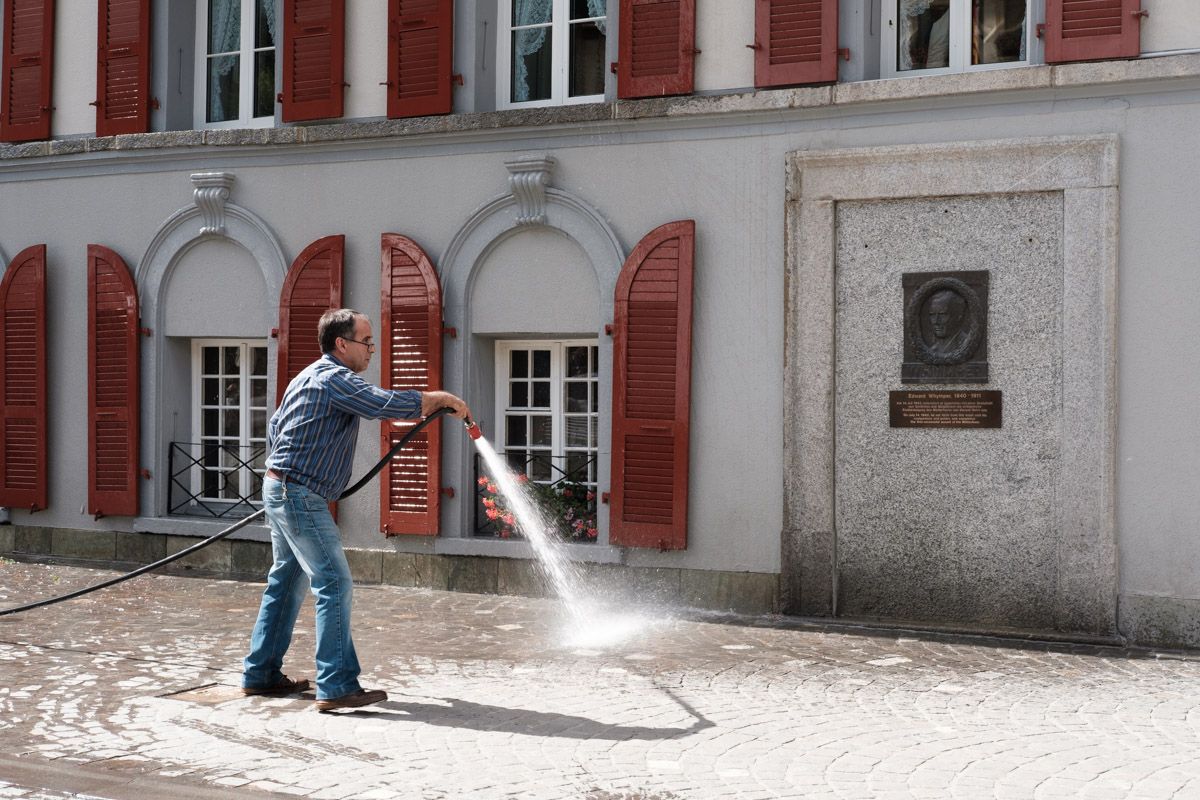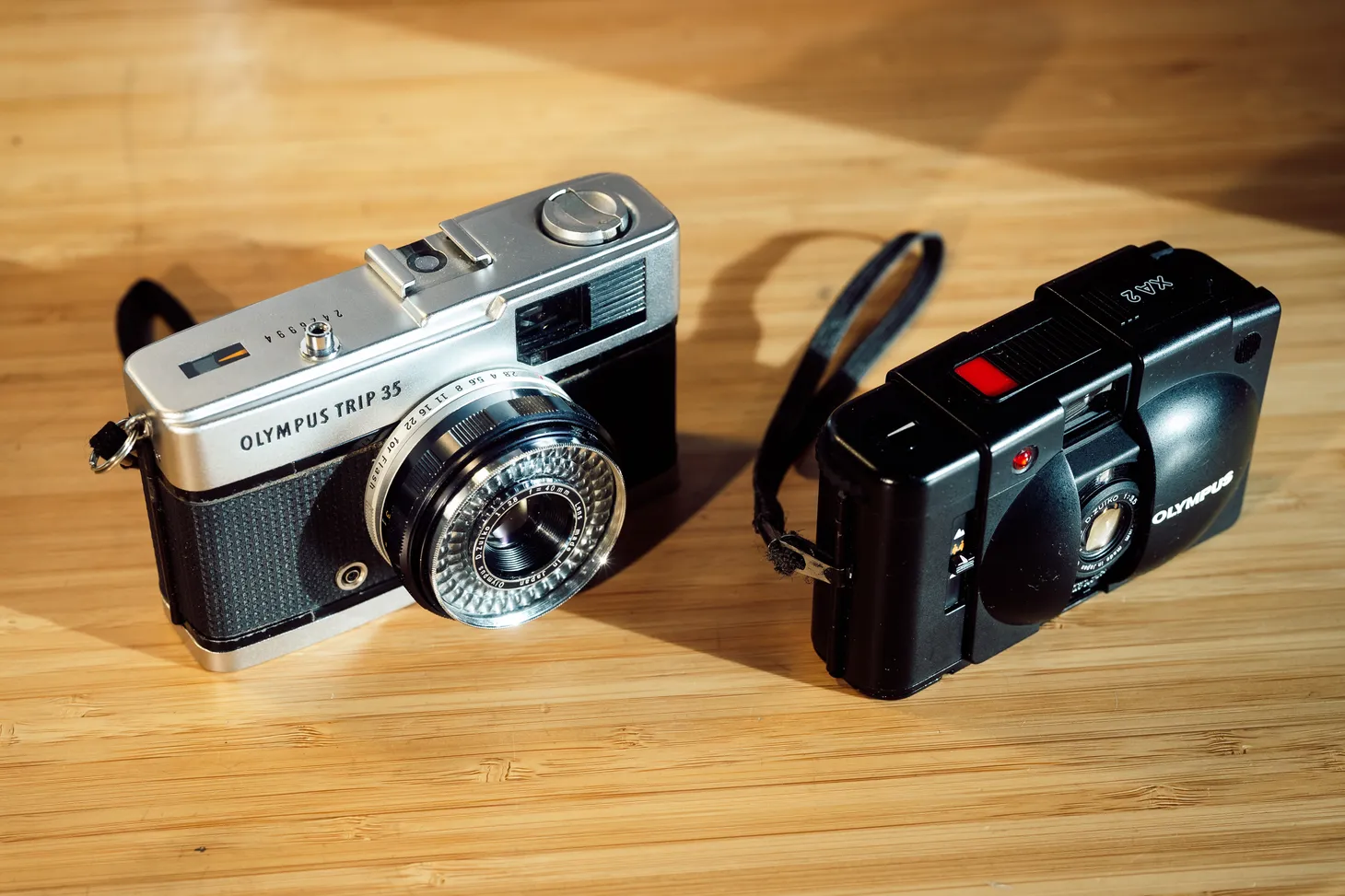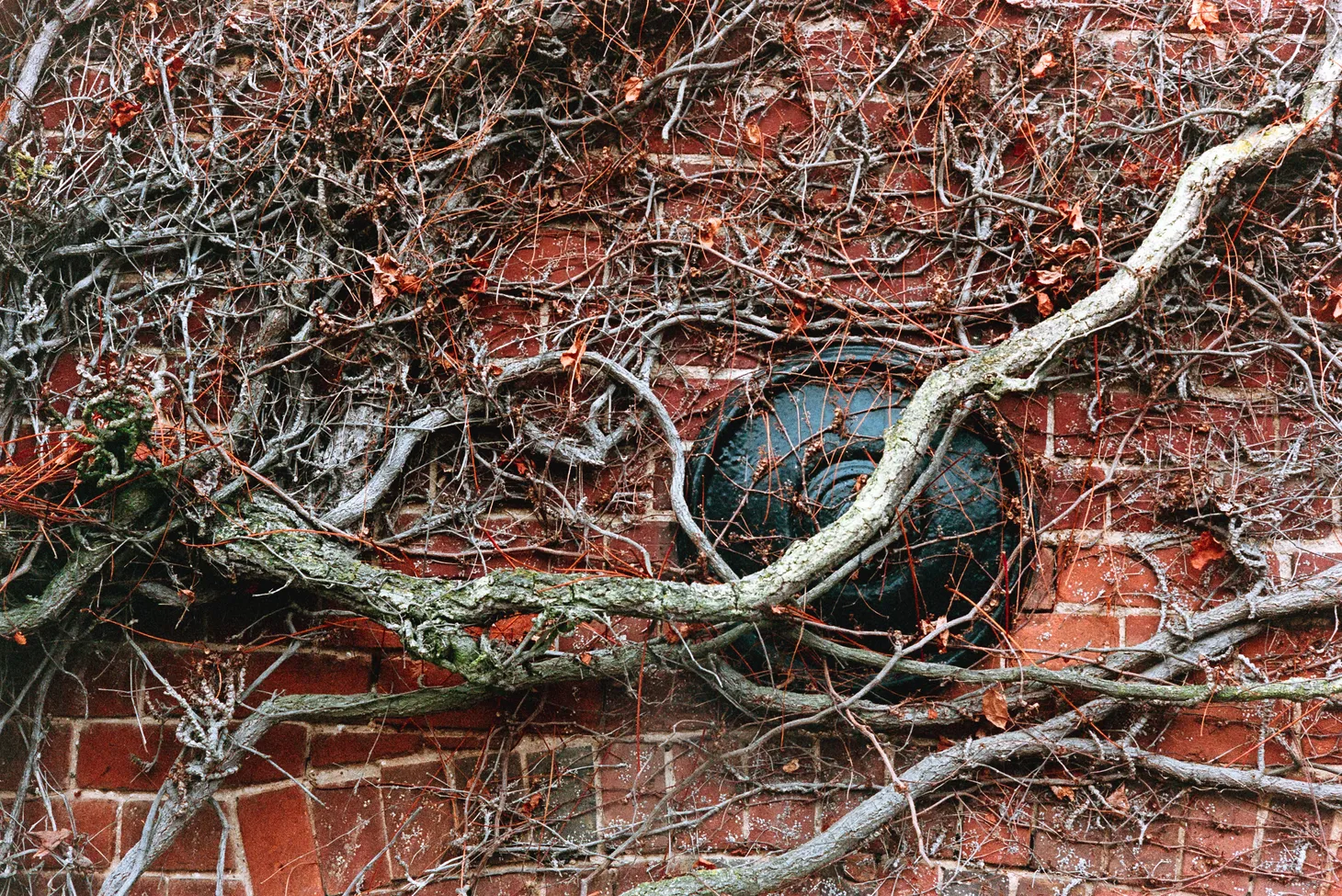A month away from social media

On October the 31st 2017, I signed out of my personal Facebook, Twitter, Instagram and LinkedIn accounts, and I didn’t sign back in until the 1st of December. Here’s what I learned.
Preface
Please don’t read this as advice for how you should modify your social media usage. This is a very personal account – and what’s more, I’ll add the disclaimer that these are my own views, and in no way representative of those held by my clients, partners, etc. etc.
Ironically, you probably found the link to this essay in a tweet. C’est la vie.
Why go dark on social media?
It’s a fair question.
The truth is, I struggle with social media and often bounce between thinking it’s great and thinking it’s terrible. Although it can be fantastic, and has led to many valuable personal and professional connections with people I’d never have met otherwise, I hate the way it’s designed to monopolise attention, I’m wary of the privacy and security risks, and I’m tired of the never-ending fountain of advertising, fake news and trivial rubbish.
I’ve gradually come to believe that, for me, the sheer volume of information is itself overwhelming. Since I first started using social media and web forums, I’ve found all such sites a massive drain on my concentration and ability to focus.
I continue to use them because I find them valuable, but I’ve long struggled to keep my usage in proportion.
Yes, I’ve been here before. Several times over the last few years I’ve temporarily scaled back my involvement with social networks, usually by removing the apps from my phone or going back to a basic phone for a while, but these experiments didn’t result in permanent changes to my habits beyond a decrease in my time spent on Facebook, a preference for a locked-down Tweetdeck experience over the information firehose of Twitter.com, and a long-lasting aversion to smartphone notifications of all kinds1.
This time I decided to do things a little differently, because I had a solid reason: I wanted to write a novel in a month. While that didn’t happen for unrelated reasons2, I’m still very glad I did this.
My strategy
Here’s what I did in November:
- Signed out of my personal social accounts on my computer;
- Temporarily replaced my smartphone with a magnificently dumb Nokia 3310 (2017 model);
- Restricted my time spent on other social accounts (an essential part of my job) to specific timeslots during the day.
Observations from my logged-out month
These observations are based on notes I made during the experiment.
Week 1
I hadn’t realised how often I used to think in tweets. I’d become so used to crafting 140-character remarks that thoughts often arrived in that format fully formed in my brain. Before, my next action would be to tweet that thought and wait for the likes to roll in, but now I can’t do that, so the untweeted tweet echoes there pitifully for a while before dissolving back into the stream of consciousness.
In that first week I asked friends to stop contacting me through Facebook Messenger and to email me instead. This was the best aspect of the whole experiment. Before, I might have exchanged many brief communications through Messenger, but now we’re having much more in-depth conversations again. People like to complain about email, but I find it vastly superior to social messaging – you just have to put a bit more time and effort in. It’s nice to only have one inbox to keep tabs on, too.
Week 2
I definitely have far more time in my day than I used to have. It used to be an occasional bad habit of mine to keep a browser tab with Tweetdeck open, and flick back to it every 10 or 15 minutes. You don’t think you’re spending too much time on Twitter when you use it that way, but you are. When the cost in switching attention is considered, I think it’s worse than spending a single block of an hour or two on Twitter once a day.
To my surprise, I found that the urge to log back in and look for notifications receded by the second week. I know my server has auto-tweeted a few blog posts, and for a while I was curious if anyone had commented on them3, but I know that if anyone wants to have a real discussion about something I’ve written they’ll email me (and people often do, which I always look forward to).
By the end of the second week I’d stopped thinking in tweets and very rarely felt the urge to tweet anything. I’ve used Facebook’s standalone Messenger website a fair bit (as Messenger is just too convenient a way to chat to Hannah when she’s at work), but at this point I hadn’t even thought about Facebook itself since the start of the month. Curiously, Instagram seems to have less of a psychological grip on me – I found it very easy to leave this network behind for November.
Week 3
At the back of my mind when I began this month-long experiment was the question of how it would affect my career. Surely withdrawing from Twitter would be damaging? While I had no contact from any new potential clients in November, existing clients have been in regular contact as usual through email. I haven’t been short of work. In fact, it’s been a busy month.
I’m noticing there are things I’m missing thanks to my complete absence from Facebook. Before, I wouldn’t log in often – maybe a handful of times a week – but it’d be enough to keep up with things that were happening with my friends, many of whom live in far-flung places (the curse of having moved around a fair bit over the last decade). That said, I am hearing of the important stuff either through email or, in the case of mutual friends, from Hannah (who is on Facebook).
Compared to previous smartphone-free experiments, not using a smartphone has been easy this time. When leaving the house I just have to do a bit of planning beforehand: check the weather, check my bus/train times, make notes in my notebook, make sure I have a printed map, think about contingency plans. It should be common sense but these are easy to forget when you’ve been dependent on being able to easily Google stuff for so many years.
Hannah and I even managed an entire day in London without a smartphone between us (actually that’s a lie; I did turn on my iPhone once for about five minutes when we got slightly lost, but as soon as I figured out where we were I switched it off again).
Not having a smartphone in my pocket feels incredibly freeing. It’s great knowing that when I step away from my computer I won’t be bothered by work matters that I should be leaving until the next day.
Week 4
At the end of the month, I set a sheet of paper down on my desk to list the benefits and count the costs of my month away from social media. Here is what I recorded.
The good stuff
I may not have completed NaNoWriMo, but I did write 25,000 words of fiction, which is a heck of a lot more than I’ve managed in any other month for several years.
My attention span – specifically my ability to focus exclusively on a single ‘deep’ task for an hour or two – continues to recover, and has made great strides this month. I’m convinced that not being bombarded by an endless stream of information multiple times a day (only a tiny percentage of which is relevant or even interesting) has been an important factor.
I’ve rediscovered how much better email is than social messaging. Restricting my point of direct contact to a single inbox has been very freeing too – no longer can people contact me on any of four social inboxes. Everyone uses email so there’s no inconvenience for anyone here, but it makes my life a lot simpler.
I’ve found time for a lot more reading as well as a lot more writing.
Using a dumbphone for a whole month again has been glorious.
I’ve been reading fewer random articles on the web that promise to be interesting but turn out to be clickbait, poorly written, or lead to attention rabbit holes that go nowhere and waste my time.
Maybe it’s because my mind is simply less full of junk and has more time for idle pondering, but I’ve been recording a lot more ideas in my ‘some day’ folder for future consideration.
The bad stuff
There have been times when I’ve felt out of the loop. Although I’ve enjoyed communicating with more people by email, there are things I’ve missed – both on Twitter, where most of my web acquaintances are to be found, and on Facebook, which I keep almost entirely for friends and family in meatspace4.
It’s very hard to tell after such a short period, but I may have missed out on work opportunities. I’ll have been less visible to potential clients. I am by no means short of work at the moment, but over a much longer period this could become a concern. It’s also made me realise that my website needs to work harder for me.
I’ve missed chatting to people on Twitter. I hadn’t fully appreciated how valuable I find the time I spend interacting with colleagues, clients, readers and like-minded folk on that network.
There’s a good chance that I’ve missed interesting news or links relevant to my job. I hadn’t realised how many story ideas and news pieces originate by reading something on Twitter. Although I’m wary of the filter bubble effect, there is a lot of high-quality, valuable material there too.
What I’ve noticed about social media
I’ve still been using Facebook and Twitter from other accounts as part of my job, but only for a short period each day, and I’ve been noticing that most posts on the timeline fall into one of several categories:
- Broadcasting tribal/group affiliation. I won’t use the term ‘virtue signalling’, because it’s almost always used as a way for the right to shut down voices they don’t agree with (and with no small degree of hypocrisy in some cases I might add), but in a broader sense the concept is valid. People like to make statements that signal either the things they believe in or some aspect of their identity. While this is not necessarily a bad thing, there is an awful lot of it on Twitter, and it can be exhausting to wade through.
- Toxic politics. Left or right, politics on social media is an unendurable, incoherent hellspew. There is no such thing as calm, polite and considered online political debate in 2017. Nobody ever admits they’re wrong online, and tolerance is extremely low. The filter bubble effect is making things worse and I can see no easy way out of this downward spiral.
- Self promotion. We’ve all got to eat, and I self-promote on Twitter too, but there is a fine line between tasteful and annoying self promotion. Pro tip: tagging lots of unrelated accounts in your tweet is annoying.
- Automation. Bots auto-tweeting links to content that may have been algorithmically generated (or at least heavily influenced by algorithmic trends).
- Fishing for retweets and likes. The humble ‘like’ is a psychological trick built in to the design of social media and the key to what makes these services addictive. Some people go to great lengths in order to obtain more likes. This kind of behaviour is more prevalent on Facebook, but it’s common on Twitter too.
- Random trolling. Stick your head above the parapet, say anything controversial, and you will be mercilessly trolled by people who are convinced you are wrong.
- Apocalyptic news. It’s depressing, and I’m not sure my life is any better for seeing news about the latest mass killing in Twitter’s ‘trending’ list. (Donald Trump, Brexit and The Daily Mail fall under this category too.)
- Fake news, clickbait, and rubbish writing. Is it real? Is it fake? Is it biased or misinformed beyond all semblance of truth? Has it been sloppily written and slapped up there just to generate traffic without anyone giving a damn at any point? It’s 2017, so it could be any of the above.
- Genuine and interesting conversations. There’s a strong thread of good too: people interacting with other people, exchanging ideas, making new contacts, changing the world for the better.
- Amazing writing, photography, and video. Swimming against the tide of rubbish, there is a lot of amazing stuff on Twitter: beautiful and technically accomplished photography, links to well-written and rewarding long-form writing and journalism, new books and magazines to be discovered, people who tweet useful and fascinating things. Humans giving a damn about human things, essentially, rather than bending to the will of the machine and its algorithms.
My strategy from now on
I’ve come away from this month with a far more negative opinion of social media in general, and yet a keener appreciation of its good qualities and how important they are to me.
Social networking is valuable to me mainly for three reasons: communicating with friends and family, as a source of information and ideas for my work, and for networking with colleagues and potential clients. But the amount of time that I used to put into it far exceeded the actual benefits I got out of it.
This is because social media is expertly engineered to capture and hold your attention over long periods of time. It’s designed to be an addiction. Don’t feel too bad if you dislike your relationship with social media, because it isn’t entirely your fault – you are being manipulated.
Here are the lasting changes I’m going to make to my habits:
- I’m going to keep talking to people via email, and I’m going to take the further step of asking people to stop contacting me through social direct messaging. Funnelling all communication into a single inbox has been surprisingly great and I would like to continue with this in future.
- Personal social media will be partitioned into strict timeslots, just like most other things I do on a day-to-day basis, and I’ll make use of blocking software to enforce this.
- I might experiment with sitting on potential tweets for 24 hours before posting them. I suspect this will cut down on the amount of nonsense I personally contribute to the infinite stream of nonsense out there. At the very least, I’m going to try to be more intentional with my Twitter usage, post less often, and focus more on getting genuine value out of the service (and adding value for people who read my tweets).
- I’m going to stop relying on Twitter for general news, because I’m wary of the filter bubble effect. I’m going to try reading more considered, long-form journalism. How I achieve that is still an open question.
- I’m going to pretty much stop using Facebook. It’s long been my least-favourite social network. I’ll continue using Messenger, but I will post new material on my Facebook account very rarely, and aim to turn it into an archive in the long term – it has a lot of material stretching back over a decade, so I certainly won’t be deleting it.
- I won’t change my relationship with Instagram. I’ll continue to check the app a few times a week and post something new a few times a month. These days, it’s my favourite social network – partly because I feel more able to use it sparingly.
Every website should respect its users
I’ll finish with a statement that I was first taught when studying web design at university ten years ago. I’ve always understood the ‘respect’ part of the saying to mean that people should be in charge of the web tools they use, not the other way round.
Unfortunately, I don’t think that’s really true of the web any more. Maybe it hasn’t been for a long time.
A social network uses us far more than we use it. It’s free at the point of use, which means it is not the product in this transaction: the user’s personal data is the product. And, as we’re only just starting to realise, handing over that product comes with the additional costs of our attention, our time, and our concentration. Maybe even our ability to discern the relevant from the irrelevant.5
We pay a heavy price for the many clear and irrefutable advantages social media bestows upon us.
It’s my hope that social media will grow up over the coming years and decades. It’s an incredibly powerful tool, one with the ability to do enormous good and effect dramatic change. I believe humanity should be able to access that power without submitting to the will of tech giants who now have as much control over our lives as governments do.
I’ll continue to use social media, but I’ll do so with open eyes, and I’ll fight against that control.
- I have kept virtually all notifications deactivated on my smartphone since 2014, and am convinced my life is better for it. The only notifications I allow on my phone are incoming calls, text messages (which are rare), and the alarm that wakes me up in the morning. Absolutely everything else is disabled with extreme prejudice. It’s the only way I can stand to use a smartphone at all. ↩
- https://www.alexroddie.com/2017/11/nanowrimo-week-three-capitulation.html ↩
- Comments on this site have of course been disabled for a long time. ↩
- Meatspace is a term meaning ‘the real world’, thought to derive from the Gibsonian word cyberspace (which originated in the seminal cyberpunk work Neuromancer and is now in common usage). ↩
- Carr, Nicholas: The Shallows ↩
Alex Roddie Newsletter
Subscribe here to receive my occasional personal newsletter in your inbox. (For the fun stuff, please consider subscribing to Alpenglow Journal instead!)




